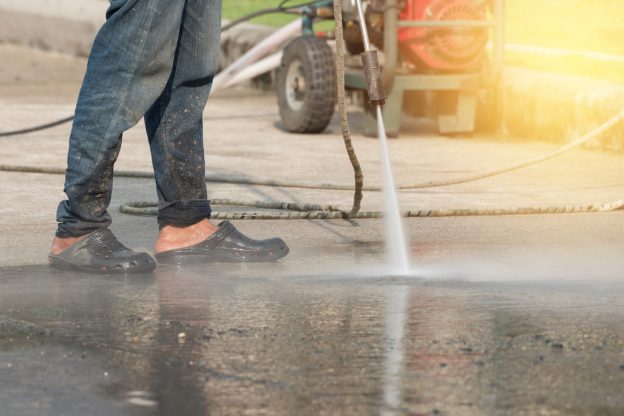Anyone who has used a pressure washer in a regular or semi-regular manner might have come across the issue of low power once or twice.
To clarify, when we say low power, we do not mean the low power setting. Many people might choose to use a low power setting when using their power washer so they do not damage the item they are cleaning.
While sometimes it is beneficial to have a low power for cleaning; if the low power is constant and automatically enforced, this can create many problems and be very frustrating. By this, we mean we are referring to the occurrences where you washer has a low pressure due to a mechanical fault.
One of the biggest problems regarding your pressure washer losing power is there is no metaphorical one size fits all. For example, a common mistake most people used to make is assuming that if there is a loss of power, the machinery in general is at fault. However, there are multiple causes of low power in your pressure washers.
Well each reason can vary drastically different, there is usually similar route causes. Some of the different can be attributed to the fact that there are many different models and different brands to contend with. For example, we stock many great brands and different types of washers like the industry leading Karcher washers.
As we offer high quality industry pressure washer hire from Stoke, we thought we should help by illustrating some of the potential causes of low power in your washer.
Relief Valve Issues
The pressure relief valve is a quintessential piece of safety equipment for your washer. The valve protects both the washer operator and the washer itself from a potentially dangerous build up of condense pressure. Additionally, general issues with the relief valves can result in loss of pressure.
Some of the potential issues can involve the valve getting stuck in motion, being partially plugged or the valve getting stuck down. While issues with the relief valve can involve just about anything, there are steps you can take to mitigate against these problems occurring. Some of the proven methods include performing regular checks on the valve as well as cleaning it regularly and thoroughly.
Worn or Degraded Nozzle
Potentially the most common cause of lower pressure in your washer is a worn degraded nozzle. Although it is one of the most common, it also has one of the easiest fixes. If the nozzle is worn or just generally old, simply replace it.
Dirty Inlet Discharge Valves
At Britclean, we have frequently sung the praises of cleaning your pressure washer as and when you can. Afterall, how can you expect something to clean well if the washer is not clean itself. One of the most common culprits of loss of pressure is a dirty or foul inlet discharge valve. To ensure your washer is working to its full capacity, you should clean your valves on a regular basis to ensure there are no blockages and that the valve works effectively.
Blocked Discharge Valve
If you want to ensure your high pressure hose is working properly and that you have sufficient water pressure, make sure to unblock your discharge valve. If the discharge valve is blocked, as you might have already guessed, your washer might start leaking. As a direct result of this, you might get low pressure.
Restricting Inlet
If your inlet is restricted, this might be causing low pressure in your washer. Similarly, it can be said that if unwanted air is entering your pump, this could also cause your washer to have low pressure.
At Britclean, we stock a wide of range of pressure washers. So why don’t you check out our wide range of products and be sure to keep up to date for our most recent blogs. Our blogs are very informative and all encompassing.
We also supply other high quality services including our commercial vacuum hires in Stoke-on-Trent. So, if you have any questions or are in need of pressure washer or vacuum services, please contact us.

